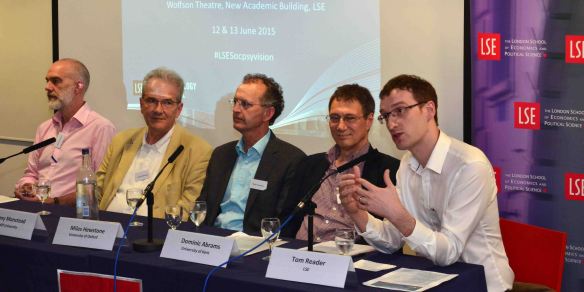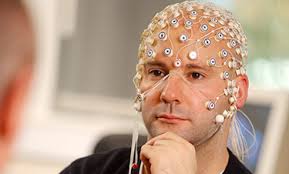 I spent two days last week, underground, at a conference on visions for the future of social psychology at the London School of Economics, UK #LSEsocpsyvision. Scrolling back through the Twitter feed, and reflecting on the event, I realize I am more struck by what was not said, than I am by what was discussed: the liminality of the spaces in between. Here I want to take the opportunity to reflect on that.
I spent two days last week, underground, at a conference on visions for the future of social psychology at the London School of Economics, UK #LSEsocpsyvision. Scrolling back through the Twitter feed, and reflecting on the event, I realize I am more struck by what was not said, than I am by what was discussed: the liminality of the spaces in between. Here I want to take the opportunity to reflect on that.
What is social psychology anyway?
Looking back – I realize that no one sought to define social psychology per se. In fact, no one mentioned what first comes to my mind when someone mentions the term social psychology. Its text-book definition, or the one I learnt, courtesy of Allport (1954) as a first year undergraduate.
Social Psychology is the effect on thoughts, emotions, behaviour of the real or imagined presence of others.

Photo’ from http://blogs.lse.ac.uk/psychologylse/2015/06/15/the-vision-of-social-psychology-photo-gallery/
Alongside talk of transdisciplinary successes was an often careful comparison-drawing with what social psychology is not. On the one side, it is not, it was argued, sociology – on the other – it is not neuroscience. We work, the consensus seemed to me, – at the meso – or human level. Social psychology is about the individual in society. The individual in the group. Interestingly, when clearing her office space last week, my office mate found her final year exam paper in Psychology in the 1970s; one of the questions read:
Since sociology is the study of social systems and biology is the study of the body, including the brain, there will come a time when Psychology is no longer needed. Discuss.
She would have been asked to write on this for three hours. There was, over the course of the two days, much talk of boundaries and borders. What counts as British social psychology? Where do the edges of social psychology lie? I was reminded, in this discussion, of a sermon one given by the minister of my church, Rev. Dr. Carla Grosch-Miller. In it, she argued that, instead of putting careful fences up around Christianity, to protect, for example, the sanctity of male-female marriage, (do note:as a church we fully support same-sex marriage) we should aspire to be like the cattle-herders on the plain. Their cattle have no fences. And they are not needed – because the cattle are drawn to the well-spring in the middle of their land. They stay there. As long as we are life-affirming (as a church) people will be drawn to us. So, I would argue, it should be with social psychology. While we have something useful to offer, we needn’t worry about fences – people will be drawn to us to enrich their explanations of social phenomena, and we will both thrive.
Exodus from Social Psychology
The painful question facing us then, and voiced by Sonia Livingstone, @Livingstone_S is why people rapidly exiting social psychology, in leaky pipeline style. There are very practical reasons, of course, in terms of career opportunities, and funding – but what about beyond those? This is where I must admit to suffering from identity confusion. I research social identity theory. I research group processes, diversity, and social exclusion. I research bullying and friendship. Yet I have only once published in a social psychology journal. What I find instead, is that my research enthuses developmental psychologists, educationalists, the press. I have been told my findings are not news-worthy enough for social psychologists.
This Autumn, I have been warmly welcomed to a theology conference, where I will present on group support for youth who have been socially excluded for being LGBT+. In spite of this, I still would like to think I am a social psychologist. But the novel interest, it seems, in my research, is found in taking social psychology elsewhere: in offering it in explanation for social phenomena away from the traditional social-psychology box to the spaces in between. I found I came up with oodles of new ideas for my research at a talk in the School of Education. I have made links with collaborators there. Does this make me less of a social psychologist?
Faces and Voices of Social Psychology
To borrow and re-work a phrase from Steve Reicher, I research social psychology, not because I am interested in social psychology, but because I am interested in the social phenomena I study. Passionately so. Research is me-search, after all. I want to seek good collaborations to research those phenomena well: I want to take social psychology out to other disciplines, and to bring other disciplinary explanations back to it.

Photo’ from http://blogs.lse.ac.uk/psychologylse/2015/06/15/the-vision-of-social-psychology-photo-gallery/
Something else that was observed at the conference, by Georgina Randsley de Moura @GeorginaRdeM : at least one of the panels was made up entirely of middle class, white, older men. Where were the younger voices represented? There was a Twitter hashtag associated with the event – and much of the younger voice could be heard there – indeed several more eminent social psychologists argued that Twitter is the premise of the young. But, I don’t think it is. I learnt how to tweet academically from Dorothy Bishop @deevybee – and I don’t think she’d mind me saying that she is not a young academic. Moreover, on this occasion, it allowed me to bring other voices to the discussion – those of a civil servant, for example. Research-wise, it allows me to disseminate widely. What about altmetrics was a way forward for REF2020?
Social Psychology of Movement
It was suggested, and perhaps the exam question attests, that we could have sat in that room 20 years ago (age-permitting) and had that discussion. What’s changed? I would argue that we could not have had this discussion back then. For one thing, the way that we view classic studies, and investigate the phenomena now, their context, has changed – dramatically so. But more than that,ultimately, even though we are all social psychologists, we are all different, with different visions, as Caroline Howarth concluded. And that’s got to be a good thing. Again, to return to Steve Reicher, he argued that there is a need for greater academic debate to move us forward. Again this concurs with a theological book I read, called You are Mine (2009) by Alison Webster, @Alisonrwebster. In it, she states:
Most of us find it easier to come to terms with the other by making him or her like ourselves; by refusing to open to experiences that are not our own. …[but] there are few things we all share. p. 19
Webster’s book is a call to embrace differences, even those that superficially seem like commonalities; to be open to one another – and to develop shared understanding from this. I would argue that, having exposed our differences as social psychology researchers and theorists at #LSEsocpsyvision. they would be a good place to open academic debate, and to enrich the content of social psychology.
Maybe, now that we are back, flung wide across the UK, this debate would take the form of an online (Twitter?) chat – or communal blog – that included or potentially included, everyone’s voice. I realize on nearly finishing this piece and in true l’esprit d’escalier, that, ironically, blogging was not mentioned at the conference. …
Nonetheless, the discussion was passionate, and engaging and I thank the organizers for that 🙂 and for finding a place for me there. As I look to my future research: I hope it can continue to retain an element of the social psychology that was at its roots at the beginning of my research career.



